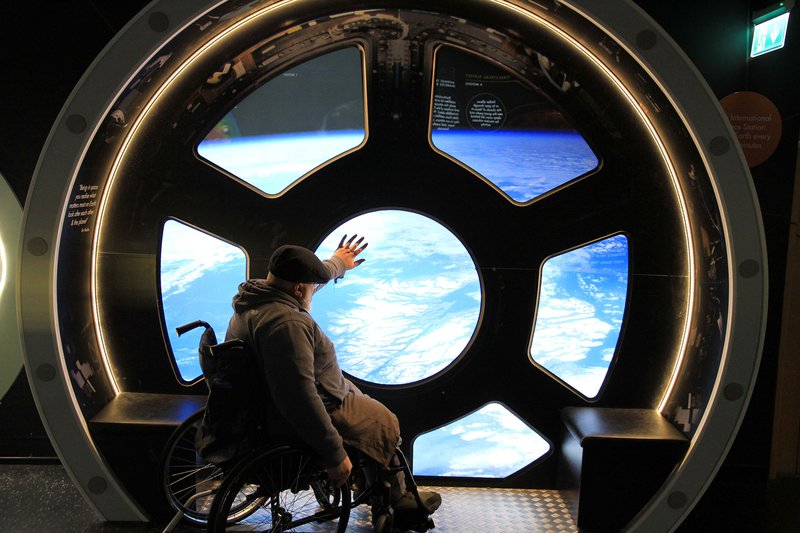Fostering a sense of belonging
Glasgow Science Centre (GSC) saw STFC funding as the perfect opportunity to cultivate new relationships.
The groups that they subsequently worked with were ones they hadn’t previously connected with, or who had expressed an interest in engaging with their services but had been unable to until now. Through this project, the centre’s already highly effective community engagement programming reached even more people who often face barriers to visiting, including disabled people, black and minority ethnic groups, religious groups, and English for speakers of other languages (ESOL) learners. They also made a concerted effort to engage individuals who could benefit most from these opportunities including school refusers, disengaged young people, and young STEM enthusiasts from low Scottish Index of Multiple Deprivation (SIMD) areas. Overall, the STFC funding allowed GSC to connect with a wider audience and make
a positive impact on their community.
Great for the Science Centre to give us the opportunity to have a voice and make it all accessible, I had a fantastic time taking part in this!
Glasgow Disability Alliance Participant
Removing barriers: Sally who leads the community learning team at GSC says that removing barriers like cost, transport, and anxiety was vital to this project. “We spend a lot of time working with the practitioners before we bring a group in”, Sally explains. In these conversations, the GSC team establish precisely what support they can offer to bring in a group that simply wouldn’t be able to visit otherwise. Requests often amount to covering the costs of transportation, offering meals, and ensuring the provision of accessibility requirements. Articulating the importance of this, Sally goes on to say: “that went a really long way to building that relationship because with all barriers removed the practitioners knew exactly what to expect when they came, they were able to really clearly communicate that to their groups”. During their visit, groups are also offered the use of the centre’s dedicated community space, The Bothy – a calm and welcoming space for them to call their own throughout the day. This extra touch allows people to settle in, socialise, and wind-down from the busy science centre environment. All of these combined shows that GSC really cares and is not asking for anything in return. “I don’t think anything quite compares to that when it comes to that relationship building piece”, says Sally.

It’s so nice to have a room where you can ‘reconnect’ with friends and meet new people before heading to the science mall.
May, Glasgow Disability Alliance organiser
Promising returns: The GSC team use a number of factors and measures to gauge the success and impact of their work, but one very telling indicator is a group’s desire to return following a visit. From the groups that GSC were able to work with through this project, several have got in touch to arrange more visits, giving the GSC team hope of more fruitful, long-term relationships to add to their existing portfolio. To give just a few examples, Interfaith Glasgow, with have expressed a desire to return with their family and adult groups; Glasgow Disability Alliance’s young people have expressed interest in a longer-term climate activism course; and City of Glasgow College’s ESOL tutor has invited the team to deliver more Climate Cafe workshops at their campus after receiving glowing feedback from the initial workshops.